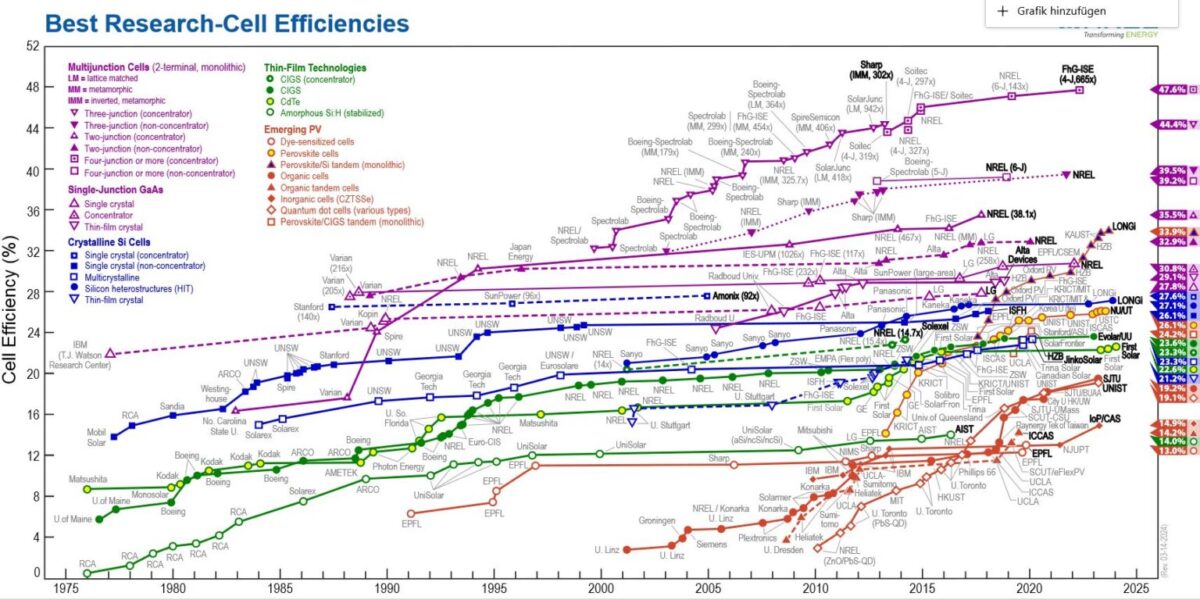The US Department of Energy’s National Renewable Energy Laboratory (NREL) has updated its Best Research-Cell Efficiency Chart with the inclusion of a new cell category – Hybrid Tandems.
“This category collects record tandem cells with layers composed of two different PV materials. Some subcategories of Hybrid Tandems (Perovskite/Si and Perovskite/CIGS) were already present in the previous format under ‘Emerging PV,’ whereas others (III-V/Si and Perovskite/organic) are new,” the research institute said in a statement. “All of these subcategories have been moved into the new Hybrid Tandems category—with the exception of perovskite/perovskite tandems, which are listed under Emerging PV.”
The NREL stressed that all these changes are now reflected in the interactive chart. The tool highlights the highest confirmed conversion efficiencies of research cells for a range of PV technologies.
“Everything up to the end of 2023 is included,” a spokesperson from the research institute recently told pv magazine, noting the chart also includes important results achieved in the first quarter of this year.
The chart now includes the 33.9% world record efficiency achieved in November by Chinese manufacturer Longi for a perovskite-silicon tandem solar cell and the 27.09% efficiency achieved by the same company for a heterojunction back contact solar cell. Furthermore, it comprises the 23.64% efficiency achieved in March by US-based thin-film module maker First Solar for a solar cell based on copper, indium, gallium and diselenide (CIGS) technology.
This content is protected by copyright and may not be reused. If you want to cooperate with us and would like to reuse some of our content, please contact: editors@pv-magazine.com.









By submitting this form you agree to pv magazine using your data for the purposes of publishing your comment.
Your personal data will only be disclosed or otherwise transmitted to third parties for the purposes of spam filtering or if this is necessary for technical maintenance of the website. Any other transfer to third parties will not take place unless this is justified on the basis of applicable data protection regulations or if pv magazine is legally obliged to do so.
You may revoke this consent at any time with effect for the future, in which case your personal data will be deleted immediately. Otherwise, your data will be deleted if pv magazine has processed your request or the purpose of data storage is fulfilled.
Further information on data privacy can be found in our Data Protection Policy.